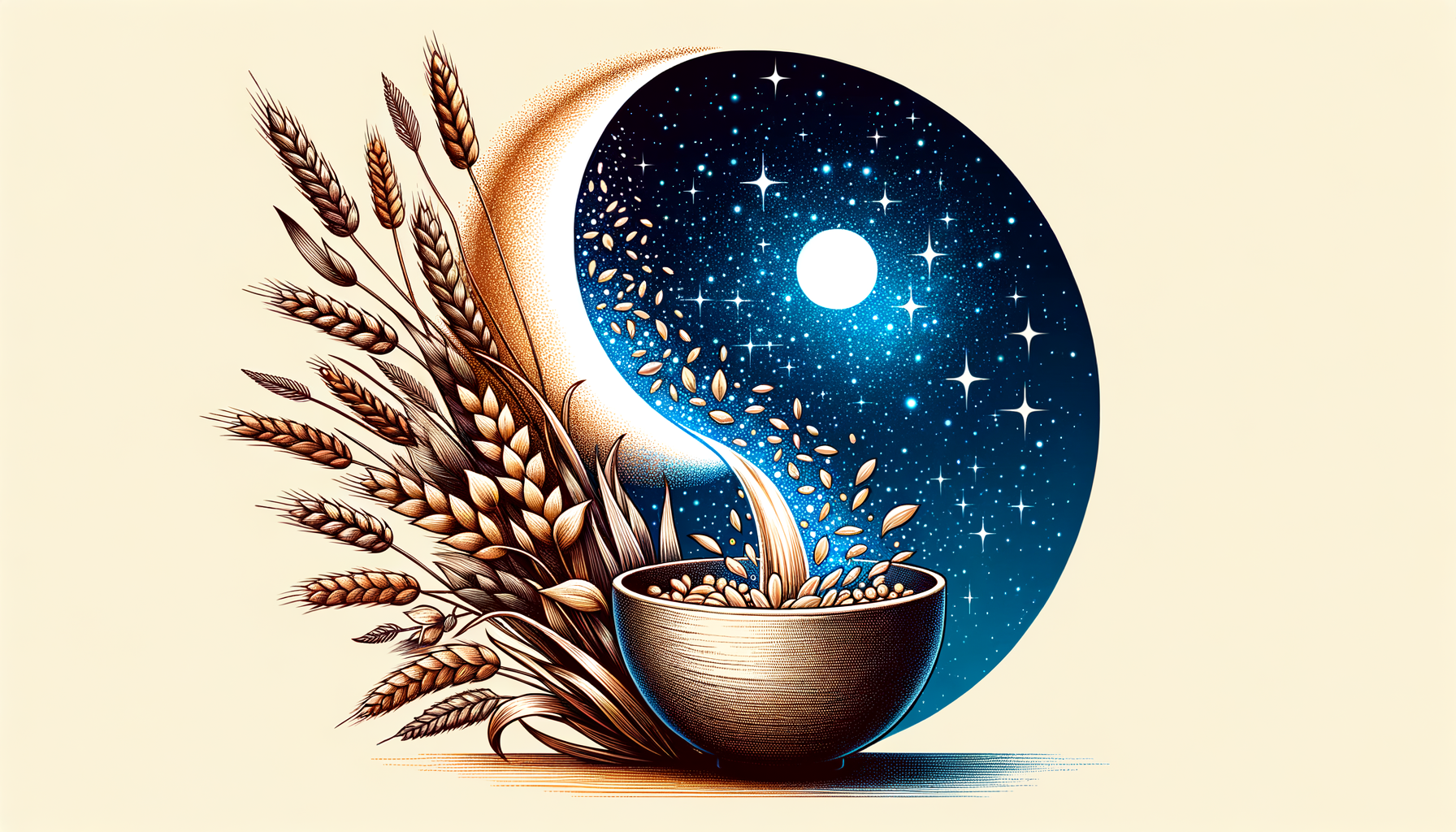What Do You Even Do All Day?: A Writer’s Confessional
“Wait, you just sit around and think about your feelings all day?” If I had a quarter for every time someone said this to me, I might actually be able to afford the artisanal oat milk I secretly prefer in my lattes. But no, that’s not what being a writer is about. Writing about relationships, vulnerability, and the human experience isn’t some never-ending soul-searching spa day. And it’s definitely not a humble brag disguised as work (though, I mean, have I brought up Utah’s sunsets yet?).
As a writer in the niche-y yet oh-so-large world of relationships and self-discovery (and a religion-nerd-turned-human-connection-enthusiast), my job is to dig into the mess: the joy, the grit, the trying to decode 'k' text messages at midnight while eating cereal straight out of a mixing bowl. It’s a world filled with misconceptions and intrigue, so here’s the truth about what I actually do—and what people get oh-so-wrong about it.
1. No, It’s Not “Just Therapy With Fancier Words”
While I’d love a couch, an office ficus, and your copay, I’m not here to “fix” anyone’s emotional baggage. Therapy helps you process and heal. Articles, essays, and stories about relationships? They help you feel less alone. It’s collaborative in a quieter way. Maybe an article about breakups inspires you to let go of your situationship (finally). Maybe a personal anecdote about rejection gets you to laugh when you really want to cry into your weighted blanket.
Do I draw on personal experience? Sure. But look, my life isn’t a melodramatic rom-com waiting to be unpacked. I’m not sitting in a park notebooking every emotion while an indie-folk soundtrack swells in the distance. Instead, I’m usually trying to translate the universal from the personal—kind of like that one friend everyone goes to for advice, but without the brunch distractions or ulterior motive of stealing your last piece of bacon.
2. Yes, I Write About Feelings. But No, I Don’t Have All the Answers
Spoiler alert: Writers in this space are still figuring themselves out, and we’re just as messy as anyone else. Just the other day, I stared at my phone for 20 minutes trying to decide whether “thanks for the invite” made me sound passive-aggressive (spoiler: it depends on whether there’s a period or an exclamation point). I’ve written about vulnerability, but pinning down my own in real life? Let’s just say I’m much better at the delete button than face-to-face admissions.
The job is less about solutions and more about asking the right questions. Why do we make the same mistakes over and over? How do we become better at communicating instead of, say, word-vomiting cryptic emojis in an attempt to sound chill? Writing about relationships isn’t about pretending I have it all figured out. It’s about creating a space where it’s okay for anyone to feel like a work-in-progress.
3. Writing About Love (Or the Lack Thereof) Isn’t As Glamorous As You Think
I’ve had people say, “So, it’s like Carrie Bradshaw, right? Just a hot writer in fabulous shoes, living the dream?” First of all, I’m more “rooftop-hiking in scuffed trail runners” than heels. And no, it’s not all vibes and pithy one-liners. Writing is work. Writing while battling imposter syndrome? That’s an Olympic event.
Think about it: for every insightful nugget (“communication is the lifeblood of connection”), there’s a lot of grunt-work. Like sitting at my desk at 11 p.m., trying to untangle notes that include the words “heartbreak doughnuts” and “emotional spelunking.” Or agonizing over phrases like “flirting gently” versus “flirting playfully,” because every word counts. Romantic, right?
Also, there’s no romance in staring at a blinking cursor. If anything, you start to resent it, like it’s an uninvited ex who keeps crashing your alone time. “9 a.m., me and this blank Word Doc—just the vibe I was going for,” said no writer, ever.
4. Not Everyone Wants to Know About Your Day Job at Parties
At social events, when people find out what I do, they sometimes lean in like I’m about to give them the ultimate cheat code to love. “So, what’s the biggest mistake most people make on dates?” (For the record: Not listening.) Or they’ll lob zingers like, “So it must be nice just to write what everyone already knows, yeah?”
There’s also this other camp of people who assume the emotional vulnerability of my work means I’m an open-book therapist in plaid. They confess things like, “I left my last partner because they always put bananas in the fridge. Was I unreasonable?” Look, Barbara, I’m more than happy to validate your banana rage, but let me finish my drink first.
The truth is, writing about relationships for work makes me want to talk about almost anything else after hours. (Did you know you can see 80% of the known constellations from Utah’s dark skies? Ask me about that instead!)
5. Inspiration Isn’t Magic—It’s Everywhere
The great thing about writing about feelings, connection, and resilience is that the inspiration doesn’t come from some ethereal muse. It’s rooted in real life: the text your best friend dissected for 45 minutes, the couple awkwardly negotiating the bill at Chili’s, the moment you realized someone was leaning in toward you, but you were leaning way out.
For me, inspiration is as much about environment as it is experiences. Growing up surrounded by Utah’s mountains taught me a lot about patience, rhythm, and pausing to see the bigger picture. Sometimes a sprawling red rock desert says more about growth than a 10-step how-to list. People and landscapes? Both are deeply layered, complicated, and constantly changing. Writing about love makes you see that everything has a story waiting to unfold—if you’re willing to actually look.
6. The Best Relationship Writers Have a Secret Sauce: Empathy
Here’s the thing that makes writing about connection meaningful: It’s not really about the writer. The goal is to put yourself in someone else’s shoes—whether that “someone” is a hopeless romantic, a Tinder cynic, or a married couple trying to rekindle the spark over grocery store sushi. It’s about finding ways to connect with everyone, even if their story looks nothing like yours.
Coming from a background steeped in community and faith, empathy was something I grew up with as a verb—not just a word. You showed love by showing up. Sure, that’s been tested over time (you don’t need a degree in cultural studies to know how complicated organized religion and family life can be), but that foundational idea—honoring people’s stories without judgment—still anchors my writing today.
So, Why Does This Job Even Matter?
At the end of the day, writing about relationships isn’t about giving people the blueprint for finding “the one” or teaching some miraculous life hack that will turn you into a better person overnight (spoiler: those hacks don’t exist). It’s about cracking open the parts of us that crave connection and reminding ourselves, “We’re in this big, messy, wonderful experiment together.”
If there’s one thing I’ve learned, it’s this: Relationships aren’t one-size-fits-all, and they don’t always look like some picture-perfect Instagram post. But amidst the awkward DMs, the shared playlists, and the quiet heartbreaks, there’s something beautiful and real—if we’re brave enough to show up for it.
So, no, my job doesn’t involve expensive shoes, therapy credentials, or some oracle-like wisdom about love. What it does involve? Being curious, staying down-to-earth, and giving people the tools to embrace their own stories. And if I occasionally do that while eating cereal straight out of a mixing bowl, well—welcome to the life of a writer.




















